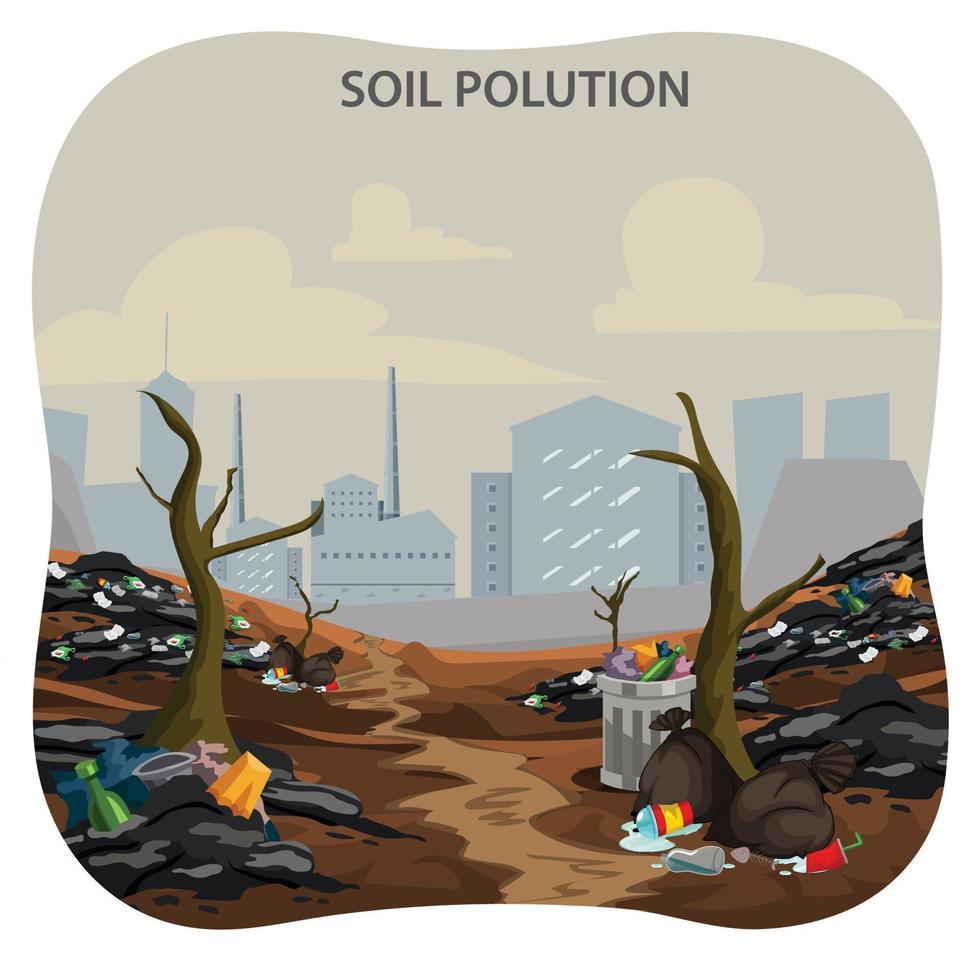Land pollution occurs when trash, compost, and other toxins are dumped on the land, contaminating or polluting it. Land pollution is caused by human activities such as littering and waste washed ashore from boats, oil rigs, and sewage treatment plants.
The degradation of the earth’s land surfaces, both above and below ground level, is referred to as land pollution. The accumulation of solid and liquid waste products, which contaminate groundwater and soil, is the cause. The greater the permeability of the soil, the greater the risk of land contamination.
Various Effects of Land Pollution are listed below.
- Climate Change – Land contamination, such as that caused by mining, farming, and factories, may allow harmful chemicals to enter the soil and water. These chemicals have the potential to kill animals and plants, destroying the food chain. Landfills emit methane, a greenhouse gas that contributes to global warming.
- Acid Rain – Forests, especially those at higher elevations, are also harmed by acid rain and fog. Acid deposits deplete vital nutrients like calcium and allow aluminum to be released into the soil, making it difficult for trees to absorb water. Acids also damage the leaves and needles of trees.
- Deterioration of fields – A chain reaction occurs as a result of soil contamination. It alters soil biodiversity, decreases soil organic matter, and reduces soil’s filtering ability. It also contaminates water contained in the soil and groundwater, resulting in nutrient imbalances in the soil.
- Respiratory health problems – Air pollution can irritate your airways, causing shortness of breath, coughing, wheezing, asthma attacks, and chest pain. Lung cancer, heart attacks, strokes, and, in the worst-case scenario, premature death are all risks associated with air pollution exposure.

